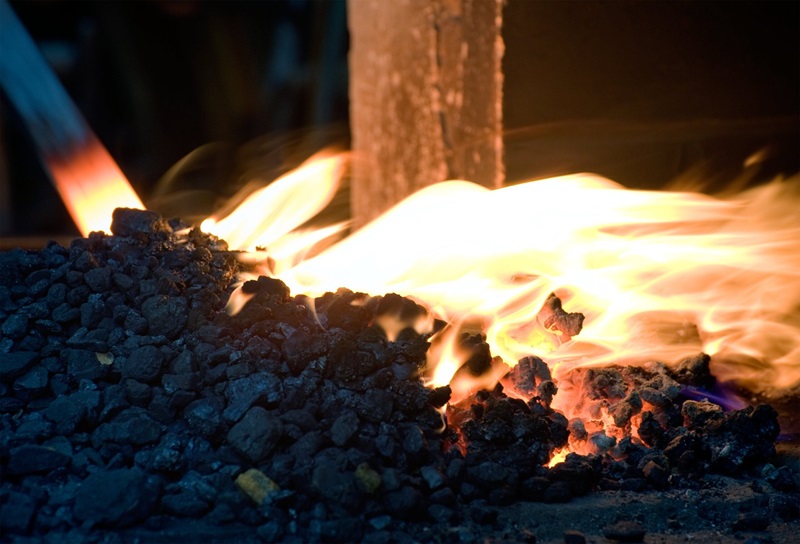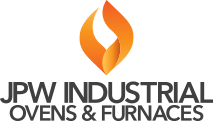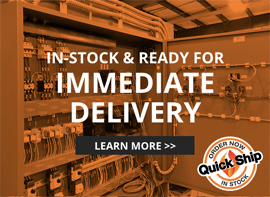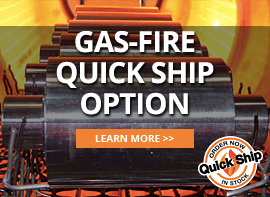 Hidden behind the scenes of manufacturing facilities, industrial ovens play a crucial, yet often overlooked, role in determining product quality. These unassuming appliances have a direct impact on the characteristics of many everyday items, ranging from the glossy finish of automobile parts to the flavorful crunch of our morning breakfast cereals. Often, the difference between a batch of products that meet quality standards and those that fall short can be traced back to the precision and reliability of industrial ovens.
Hidden behind the scenes of manufacturing facilities, industrial ovens play a crucial, yet often overlooked, role in determining product quality. These unassuming appliances have a direct impact on the characteristics of many everyday items, ranging from the glossy finish of automobile parts to the flavorful crunch of our morning breakfast cereals. Often, the difference between a batch of products that meet quality standards and those that fall short can be traced back to the precision and reliability of industrial ovens.
The Silence in Every Heat-Treated Success Story
Imagine the journey of a simple metal component. It begins as raw material and, through the intricate dance of fabrication and heat treatment in an industrial oven, transforms into a hardwearing cog that ensures the smooth operation of a large industrial machine. Each step in this process is critical, but the thermal processing stage is where the metal’s integrity is truly forged or weakened. With the right heat profile and consistency, an industrial oven can turn a pliable metal into a component capable of enduring harsh industrial environments.
The silent partnership between industrial ovens and manufacturers does not end with metal. Across industries, thermal processing is a staple, whether it’s for curing polymers or annealing glass. Heat, applied in a careful, controlled manner, can alter material structures, reduce defects, and enhance properties like strength, color, and texture. This precision is why industrial oven manufacturing is not just about building machines; it’s a craft integrating science and engineering to deliver predictable and repeatable results for businesses around the globe.
Precision: The Heartbeat of a Quality-Driven Oven
But how do industrial ovens achieve such precision, and what does it mean for product quality? The latter question can be partially answered by the former—a modern industrial oven is a marvel of technology and craftsmanship.
Mike Jameson, from JPW Industrial Ovens, explains, “Our ovens are calibrated to process-driven tolerances. The temperature, airflow, and humidity—the holy trinity of heat treatment—are constantly monitored and adjusted by sophisticated control systems, ensuring the product inside the oven experiences the exact environment required for its transformation.”
This precision is non-negotiable when quality is the currency of the company. For instance, the food industry demands stringent temperature uniformity to avoid hot or cold spots that could lead to product wastage or potentially cause health hazards. In contrast, the aerospace sector might specify a specific heat profile to ensure aerospace materials maintain their tolerance and resilience at high altitudes.
Metals, Machinery, and More: Diverse Applications of Industrial Ovens
The variables change with materials and industries, but the consistent theme is the thermal process’s critical nature. From embrittlement, which renders metals as fragile as glass, to the curing of composite materials that find use in advanced aircraft—industrial ovens are the unsung heroes ensuring that manufacturers achieve their desired properties every time, without fail.
Industries might project a product release date predicated on the confidence that their composite parts undergoing the curing process in an oven will emerge with the necessary strength and integrity. In a fast-paced, just-in-time manufacturing world, where product consistency and on-time delivery are critical, the reliability of these behind-the-scenes thermal processes cannot be overstated.
Energy Efficiency: Not Just a Sustainable Trend, a Quality Anchor
The sustainability movement has not bypassed the industrial oven domain, and for good reason. Improved insulation, recirculation systems, and other energy-efficient designs are not just about reducing carbon footprints; they also contribute to a more stable and predictable thermal profile within the oven chamber.
Jameson continues, “Energy-efficient designs translate to more consistent and reliable thermal processing. The oven can recover to the set temperature after a load is introduced, minimizing production downtime and ensuring no reduction in product quality.”
With rising energy costs and environmental concerns, manufacturers are turning to more sustainable practices. Energy-efficient ovens are a crisply baked example where the pursuit of sustainability converges with operational excellence—a dual win for the business and the environment.
The Future
In the era of Industry 4.0, industrial ovens are also getting smarter. Digital twins, predictive maintenance, and machine learning algorithms are no longer terms confined to silicon wafers and microchips. These technologies are migrating to the oven shop floor, empowering manufacturers with real-time insights and proactive maintenance that can prevent quality dips before they even occur.
The potential for these smart ovens, as Mike Jameson envisions, “lies in their ability to self-optimize. They can tune themselves to new products and materials, learning from each batch to provide the best thermal processing conditions for that specific production run.”
Imagine an industrial oven that can tailor its processes not just to the materials but to the desired end-properties of the product. It’s a future where quality is not just ensured but is baked into the very design of the ovens themselves. This kind of innovation isn’t a recipe to follow; it’s a new chapter in the story of manufacturing quality.
The Quality and the Legacy of Industrial Ovens
Industrial ovens will always be the silent partners in product quality. Their legacy is not just in the machinery they comprise, but in the stories of quality products they help bring to life. Across the industrial landscape, from the crevices of tightly-bound composites to the artistry of surface coatings, the imprint of industrial ovens on product quality is indelible, if unseen.
In a world where quality is the differentiator, industrial ovens are not just essential elements in the manufacturing process—they are custodians of quality, gatekeepers of consistency, and unsung champions of customer satisfaction. As we peer into the future these ovens help shape, one thing remains certain: the quality of products will continue to be baked into the very heart of our industrial ovens, ensuring the highest standards for generations to come.
JPW – Continues to Evolve, Embracing Innovative Technologies
JPW is dedicated to evolving with the advancements in industrial oven technologies, consistently enhancing their products for superior performance. They recognize the importance of not only transforming raw materials into essential products but also driving the shift towards sustainable and intelligent manufacturing tailored to our current needs and future demands. If you’re seeking either custom-built solutions or standard models, JPW invites you to discover how their cutting-edge ovens can elevate your productivity and efficiency. Embrace the opportunity for an oven customized to your exact needs and crafted for your ultimate success — contact JPW today.


